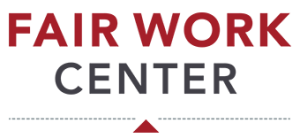CELEBRATING 7 YEARS OF SEATTLE’S SECURE SCHEDULING ORDINANCE!
Seven years ago workers across the food service and retail sectors got fed up with being treated by our corporate employers as if we exist solely to serve at the beck and call of our boss. Having no predictability or flexibility at work made it impossible to live our lives — raise kids, have a vacation, be creative, enjoy other opportunities. So, we fought for Seattle’s first-ever secure scheduling ordinance, and today we celebrate seven years of a worker-won policy that gives us some breathing room. And thanks to the Office of Labor Standards, workers have held employers accountable to the law and put nearly $10 million back in workers’ pockets. Here’s to the next seven and many more!
“The principle behind secure scheduling is clear: workers are people. Workers have lives away from work. We all have a right to know when we’re going to work and how many hours we’re going to get. We’re proud to celebrate seven years of our nation-leading secure scheduling law that holds large corporate employers accountable to this principle and grants workers greater stability and joy both inside and outside of work.”
How does secure scheduling work?
-
Employers must post work schedules at least 14 days in advance, and respect employees’ right to decline any hours not on originally posted schedules.
-
Employees are entitled to time-and-a-half pay for any hours worked between closing and opening shifts that are separated by less than 10 hours.
-
Employers must provide a written good faith estimate of median hours employees can expect to work and whether employees will work on-call shifts to new employees at the time of hire, and to current employees on an annual basis and when there is a significant change to employees’ schedules.
And more! Read more about the policy here.








